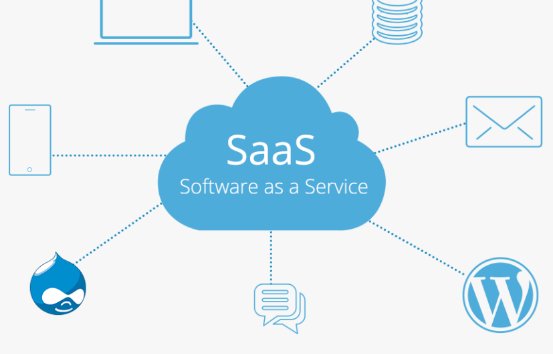New Delhi: Most of the Indian software-as-a-services startups with a presence in the US and firms linked to incubator Y Combinator are among those entities who will feel the heat of the Silicon Valley Bank collapse but the impact is likely to be short-term, according to various industry players and experts.
The Y Combinator-backed startups get their payments in the account they hold in SVB but many of Indian firms linked to incubators like Meesho and Razorpay were able to move their money out of the bank in time.
Other Y Combinator incubated startups such as Khatabook, Zepto and OkCredit did not respond to queries sent to with regard to their exposure to SVB collapse. Venture capital firm 9Unicorns, in which Y Combinator is an investor, also did not respond to the query.
Fintech firm Recur Club founder and CEO Eklavya Gupta told PTI that there are some large-size non-Y Combinator-linked SaaS companies on the west coast with operations in the US and India, who have had significant exposure to SVB.
“We are helping startups in opening their account in Gift City. We have a good partnership in place to even help large companies meet their immediate requirement. Good thing is that large companies have better management and resources available to manage the crisis,” Gupta said. Recur club has set up a pool of $15 million to help Indian entities meet their immediate expense requirement and fun payroll without diluting their equity.
SVB was deeply entrenched in the tech startup ecosystem and the default bank for many high-flying startups; its abrupt fall marked one of the largest bank failures since the 2008 global financial crisis.
Industry watchers expect a quick takeover of the bank as it has enough assets that can be liquidated to return money to the clients.
Softbank-backed InMobi Group co-founder Abhay Singhal, who is based in Palo Alto, said that the loss of $1.8 billion in the sale of securities at mark-to-market price spooked the market.
“The SVB collapse will have a short-term impact on the funding of the startups. All the new funding is likely going to be paused because venture capitalists will opt for saving current investments and I feel they will be forced to reduce the valuation of their investments. I don’t see the issue of capital is going to be long-term due to this crisis,” Singhal said.
InMobi has said that it never had any exposure to SVB.
Singhal said that in the coming week, somebody will bail out the bank because it has a very impressive list of customers.
“It is going to be an issue around startups not being able to meet payrolls in the short term. The problem that I see is short-term liquidity of around $7-8 billion that will unlock their assets and resolve the issue,” Singhal said.
As of December 31, 2022, on a consolidated basis, SVB had total assets of $211.8 billion, total investment in securities of $120.1 billion, total loans, amortized cost of $74.3 billion, total deposits of $173.1 billion and total SVB financial stockholders’ equity of $16 billion.
Y Combinator incubated Indian startup Snazzy co-founder and CEO Ayush Pateria said that most Indian startups, incubated at Y Combinator, who are exposed to SVB, are in their early stages.
“Most of them, including us, have less than $250,000 in an SVB account which is completely insured. Rest of the startups are expected to get a portion of their deposit in coming weeks. SVB even has more assets than the money owed to depositors, which will be sold over time to return the money. It is not a doomsday for firms, it has a painful short-term impact though,” Pateria said.
Indian unicorns Meesho and Razorpay said that they have no exposure to the US’ second biggest banking failure.
“Meesho is not impacted by the SVB closure. On the day of the SVB closure, we did not have any outstanding deposits or other exposure in SVB,” Meesho chief financial officer Dhiresh Bansal said.
Razorpay spokesperson said that the company has a limited amount of funds across multiple banks in the US.
“In the current situation we have no exposure to Silicon Valley Bank,” the spokesperson said.
Razorpay said that it has created a dedicated RazorpayX desk to help fellow startups urgently move funds from their US banks to India.
A leading investment firm, whose portfolio includes some of the leading Indian unicorns, on condition of anonymity, said that it had alerted its portfolio firms about probable risk at SVB and advised to move money out of the bank.
SVB noted that its clients began to move more funds off the balance sheet in the second half of 2022.
Sanjeev Bikhchandani, founder of Info Edge, said a lot will depend on how quickly the US regulator moves to allow depositors to access their funds and to what extent.
“It is a non-trivial problem for Indian startups, especially those who have flipped or chosen to domicile overseas. Many of them have a banking relationship with Silicon Valley Bank and have funds deposited there, which they will need to access in order to continue operations,” Bikhchandani said.
Silicon Valley Bank’s abrupt collapse has left Silicon Valley entrepreneurs jittery. Federal Deposit Insurance Corporation on Friday seized the assets of Silicon Valley Bank.
“There seems to be a lot more than what meets the eye – there is a reason why all these people rushed to get their money out, and it can’t just be a letter to shareholders that the CEO wrote. It has to be more than that…,” Genpact founder Pramod Bhasin said.
Bhasin believes it is unlikely to have an immediate effect, except for select startups.
“…There are enough banks and there is enough liquidity in the world, that it will be a more localised issue than an international issue,” he said.
An industry expert and chairman of 5F World (a platform for digital startups, skills and social ventures) Ganesh Natarajan observed that Indian startups do not have too much exposure, and “should not have to worry”.
“Even the startups who have banked with SVB in the US, they just have to wait it out a little…Most of them should get their money back,” Natarajan said.
PTI







































